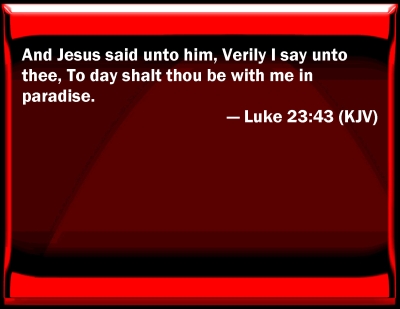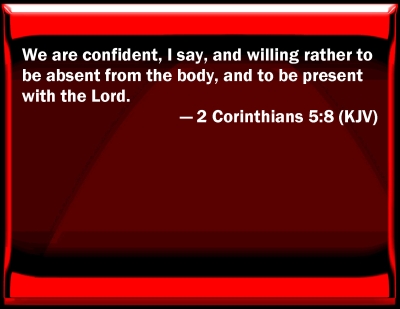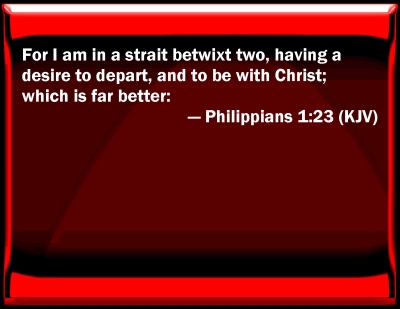
Posted on 11/15/2016 7:14:03 AM PST by Salvation
In this month of All Souls, it is good to reflect on funerals. It concerns me that very few people today seem to understand the real purpose of a funeral. The way in which we conduct ourselves at funerals, the manner of preaching at funerals, and other visible attitudes expressed at funerals not only teach poorly, but are often a countersign of biblical and Church teaching on death, judgment, Heaven, and Hell.
There are many problems, both sociological, and liturgical, that combine to create an environment that not only obscures Catholic teaching on death, but often outright contradicts it.
In today’s post, I would like to lay out what I think are some of the issues that surround typical funerals today. I do not claim that every family or parish exhibits all or even any of these problems, only that they are common.
1. There is basic confusion about the purpose of a funeral. Many people arrive at the parish to plan a funeral, presuming that the funeral should be all about “Uncle Joe,” who he was, what he liked, etc. This leads to a series of requests, some of them inappropriate. For example,
Well, you get the point. Of course none of this is the real purpose of a funeral at all. Like any celebration of the Sacred Liturgy, the Funeral Mass is primarily for the worship of God, the proclamation of the Gospel, and the celebration of the paschal mystery. Secondarily, the Mass is offered for the repose of the soul the deceased, inviting prayer for the judgment he faces and for his ultimate and happy repose after any necessary purification.
The sacred liturgy exists to glorify God, not man; to praise the Lord, not Uncle Joe. No matter how great a guy Uncle Joe was, he doesn’t stand a chance if not for Jesus and lots of grace and mercy. Uncle Joe needs prayer more than he needs praise. Whatever gifts he did have were from God. God should be thanked and praised for them.
Too many funerals focus on man, not God. Too many funerals focus on human achievements rather than the need for grace, mercy, and gratitude for all that has been received.
As a practical matter, in my parish we do not allow relatives or friends to speak during the Funeral Mass. If someone wants to say a few words, it is done before Mass starts. Once the Funeral Mass begins, though, it is the Mass and only the Mass.
2. A step is skipped at most funerals. Upon the death of a loved one there is often the instant declaration that “He’s in Heaven now.” Sometimes it’s worded a little differently: “She’s in a better place” or “He’s gone home.”
Of course such statements are grossly presumptive and in making such declarations, people attempt to sit in the judgment seat that belongs only to Jesus. If I were to say, “Uncle Joe is in Hell now,” people would be justifiably angry and accuse me of being “judgmental.” But of course those who say “Uncle Joe is in Heaven now” are doing the very same thing.
Further, Scripture doesn’t teach that people, even believers, die and go straight to Heaven. No, there is little “pit stop” first, an appointment to keep. Scripture says,
Thus instant promotion of the deceased to the realm of Heaven is inappropriate. Instead, we should give them to the Lord with our prayers, asking for a merciful and kindly judgment, and that any necessary purification be accomplished soon. The prayers for, and comments about, the deceased can include gratitude for their life and the gifts they brought. But we should never to fail to mention that the deceased goes to judgment and that we should pray for them, more than praise them.
3. Purgatory and the concept of purification after death are rarely mentioned at funerals, but should be. Purgatory is the likely destination of most of the dead, for at least some purification after death.
The whole point of praying for the dead is Purgatory! If the dead are in Heaven, then they don’t need our prayers. Sadly, if they are in Hell, they can’t use them either. It is those in Purgatory who both need and can use our prayers.
Jesus said, You must be perfect as the Heavenly Father is perfect (Mat 5:41). This is a promise, not a threat. And St. Paul said, May God who has begun a good work in you bring it to completion (Phil 1:16).
Most of us know that we are not perfect and that God’s work in us in not complete. If we were to die today, God would still have some work to do in us. Purgatory just makes sense; clergy ought not to be so hesitant to preach it clearly, particularly at funerals. We are not just here to pray for the family; we are here to pray for the deceased because he or she has gone to judgment. Even if the judgment isn’t for Hell (thanks be to God), there is almost certainly some finishing work needed, some purgation; our prayers make a difference in this regard.
4. The immediate family should not be the only object of concern and ministry at a funeral. While every priest and deacon who preaches is aware that a funeral is a sensitive moment for the family, he cannot minister only to them. Present at most funerals (in great abundance, frankly) are many who are unchurched and need to be called to Jesus. Often some of these people are in the immediately family of the deceased.
Clergy should not let this opportunity pass. The only time many of us see a lot of these people is at funerals. Waiting for “another time” to call them to repentance and to follow Jesus should not be an option. They are here now and must be called now.
At the Funeral Mass we clergy should seek to minister not only to the immediate family, but to all in attendance who are in varying states of spiritual health or disease.
Pastoral experience tells me that the overwhelming majority of attendees at funerals are in grave spiritual condition. Most of them are not serious about their spiritual life. They are not praying; they are not reading Scripture. They are not attending Mass or going to any service on Sundays. Many are in very serious and unrepentant mortal sin.
To have that many lost souls at a funeral and to say nothing at all to them about the need to repent and call on Jesus, is downright malpractice on the part of the clergy. Whether they like it or not, priests are watchmen for the house of Israel. They must go on ahead of the Judge to summon people to repentance and saving faith.
This can be and should be done at funerals. It is possible to do so with loving conviction and a passionate cry.
I have done this for many years at funerals and have almost never received complaints. On the contrary—I have received many expressions of gratitude from people who are desperate for their wayward relatives to hear such a message. I have also joyfully received back into the practice of the faith a number of people as a result of such preaching.
We must minster to everyone at funerals. They are moments that are pregnant with meaning and possibilities. They are evangelical opportunities.
It is generally agreed that things are out of balance at most Catholic funerals. Our silence about important matters such as judgment, Purgatory, and proper preparation for death makes a good deal of what we do unintelligible. Why are we offering Mass? Why do many of our prayers ask for mercy and beseech the Lord to received our deceased loved one into Heaven? If it’s all certain and perhaps even a done deal (e.g., Joe is already “in a better place”) why do we do any of this at all?
The priest should surely speak with confidence about the love and mercy of God, assuring the family in this regard, especially if the deceased had faith. The Lord Jesus loves sinners and died for us. Surely He will have mercy on those who seek it.
But God’s mercy cannot be preached without reference to human freedom and choice. Neither can judgment be understood without reference to the promise of perfection and the need for it before we can enter Heaven. Regarding Heaven, Scripture says, Nothing impure will ever enter it (Rev 21:27). The denizens of Heaven are described as the spirits of the righteous made perfect (Heb 12:23). And we are admonished, Strive for peace with everyone, and for the holiness without which no one will see the Lord (Heb 12:14).
All of these notions must balance and frame our discussion of mercy and the confident hope that we can give our loved ones back to God.
But too many Catholic funerals lack this balance. This lack is on the part of both the families, who often speak of salvation without reference to judgement, grace, or mercy; and the clergy, who often fail to preach in a way that sets forth a clear teaching on death, judgment, Heaven, (Purgatory), and Hell.
Tomorrow I will post a sermon typical of what I preach at funerals. If I do say so myself, it tries to articulate all of these themes.
Monsignor Pope Ping!
Great article in my opinion.
While I understand that the Funeral Mass has restrictions as to what it can and cannot be, it can leave those attending with a feeling that it did not really allow for honoring the decedent in any personal way.
My grandmother’s best friend wrote in her will that she wanted to have Rambling Rose played at her funeral. The family got into a BIG fight with the Pastor over the fact that this was not “liturgical music”.
I was at a Catholic funeral where the deceased was a big Minnesota Vikings fan. A Vikings helmet sat atop the casket during Mass. I guess that was acceptable?
One problem I have is with these newer Catholic churches that are laid out “in the round”. Makes it very tricky for pallbearers to navigate their way up to the altar.
At my mother’s funeral Mass I ended up fighting with the parish because they wanted the family to speak and kept asking for musical suggestions. I wanted to suggest Boogie-Woogie Bugle Boy but kept quiet. I eventually got my own way; a quiet Mass, with one song in latin and no eulogies. Phew!
That’s what the wake is for.
I think you are quite correct, personal remembrances should be reserved for the wake.
I attended a Catholic funeral a couple years ago of a great aunt, and could not believe the grand kids talked longer than the priest. The funeral ended with a non-religious band playing a couple of her favorite tunes from years back.
Seriously, I was wondering if they were gonna pass out campaign and give the old girl a final toast.
I think today’s popular belief that a funeral is for the living, not the dead, has much to do with this.
“Further, Scripture doesn’t teach that people, even believers, die and go straight to Heaven.”
Arch pope veers off the path of Scripture, taking verses out of context to support false doctrine, while avoiding what God actually tells us.
He often does this in these posted articles.
The true believer is told by Scripture that to be absent from the body is to be present with The Lord.
Ignore arch-pope and put your complete trust in Christ alone for eternal life.
Thanks be to God for His indescribable Gift!!
I can top that, FRiend! I was at the funeral of a friend’s husband and the priest gave the eulogy including the fact that the deceased enjoyed dancing. The priest then began to dance around the coffin! I’m not making that up. I was next to a friend - a left-wing gay ex-Catholic and even HE grew purple with rage.



This article comes at a needed time. Going to a wake tomorrow.The person in was active in local GOP politics and supported Mr. Trump early on. Plus he was active in my home parish.
actually, it doesnt say that to be absent from the body is to be present with the lord, it actually says:
2 Corinthians 5:8
We are confident, I say, and willing **rather to be absent from the body, and to be present with the Lord.**
if you are going to try and lecture the authors of the sacred text, at least get it right...
none of these say anything about there not being a period of purification before entering into heavenly paridise....which is what the lord himself says, you must be perfect, and pure....you cant be perfect and pure just by dying and having a desire to be with the lord....you musts be made perfect by the purifying fire of God....if you cant get that, then go on continuing to quote scripture all you want....the devil knows how to quote it as well...you are in good company.
Actually, the author of that passage is God, via the direct inspiration of the Holy Spirit as He moved men to write.
The rooster is humble enough to crow without thinking he makes the sun rise. Go and do likewise.
actually, it doesnt say that to be absent from the body is to be present with the lord, it actually says:
I did not quote the passage. I declared its teaching.
you declared its teaching??? who are you compared to those who were there when it was written and experienced this???
and nowhere in your ‘declaring’ does it say that there is no purification by God of the deceased....and nowhere in your declaration does it prove that ‘to be absent from the body is to be with the lord’ cause it doesnt say that...you misquoted it....
Evangelicals invariably misconstrue, and often misquote, that passage. There is no hint of a logical implication in it; it merely asserts Paul’s hope for two things, without claiming that one implies the other.
exactly, its a ‘go to’ for our separated brethern to prop up their own version of the faith as opposed to what was actually taught by the apostles, Sacred Tradition and the Church.
That is usually done in a sharing at the wake or Rosary the night before.
Disclaimer: Opinions posted on Free Republic are those of the individual posters and do not necessarily represent the opinion of Free Republic or its management. All materials posted herein are protected by copyright law and the exemption for fair use of copyrighted works.